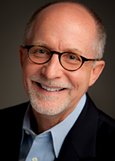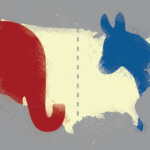Politics defies definitive description. At one time or another, politics is, in alphabetical order: Amoral. Broken. Constructive. Destructive. Ennobling. Fickle. Gauche. Honorable. Irksome. Justifiable. Knavish. Legislative. Messy. Necessary. Obstinate. Purposeful. Quixotic. Representational. Scurrilous. Thrilling. Unpredictable. Vital. Warlike. Xenial. Yucky. Zealous.
 Marv KnoxIn 2016—with both presidential candidates disliked more than liked, gridlock in Washington and single-party control in Austin—negative words describing politics come to mind quickly. In fact, preparing an A-to-Z list containing an equal number of positive and negative modifiers required creative web-browsing. What the heck, for example, does “xenial” mean? “Providing hospitality.” I know; it’s a stretch.
Marv KnoxIn 2016—with both presidential candidates disliked more than liked, gridlock in Washington and single-party control in Austin—negative words describing politics come to mind quickly. In fact, preparing an A-to-Z list containing an equal number of positive and negative modifiers required creative web-browsing. What the heck, for example, does “xenial” mean? “Providing hospitality.” I know; it’s a stretch.
But even on a good year in a less-contentious election cycle, politics divides people more rancorously and efficiently than everything except, well, religion. These days, with politics and religion intertwined, contention catapults dissension and rancor ramps up to seismic proportions. Expect a political earthquake.
A featured story for this edition of the Baptist Standard examines politics—or, more precisely, the role of churches in politics and, even more specifically, the role of pastors in politics. Our sources don’t agree. Shock. After all, we’re talking about the intersection of politics and religion. That’s where big wrecks occur.
Additional articles from this series:
Following Jesus in a contentious election season
Former editors speak on Christian citizenship and religious liberty
George W. Truett on religious liberty
Mobilizing advocates for Texas schoolchildren
Still, politics demands involvement from all of us. That’s one of the prices of citizenship. And it’s a price to be paid, even in a year when we’d rather ignore cable news, swear off Facebook and Twitter, and try to imagine a world without candidates.
But, of course, we can’t wish away 2016 and its dispiriting election cycle. We can, however, contribute to the greater good by embracing and incarnating basic truths that can strengthen and heal our society.
First, we can not only acknowledge, but also proclaim a surprising-but-certain truth: Christians and other people of faith occupy space on both sides of the political divide—and they stand their ground precisely because of their religious beliefs. Despite popular representation, some Democrats as well as Republicans vote as they do because of how they interpret the Bible and the message of Jesus.
Second, we can acknowledge the value of considering multiple options for resolving the myriad challenges facing our state, nation and world. We can seek truth and value in various proposals to common problems. This involves compromise, which you no doubt have heard treated as a four-letter word by prominent politicians, particularly here in Texas.
Baptists, who for generations have rallied around missions and ministry even as we have disagreed on points of doctrine and theology, are well-suited for modeling the art of compromise. True compromise simultaneously honors both conviction and collaboration.
Third, we can demonstrate civility and respect. We recognize these virtues are in short supply. In fact, many Americans—including some of our most powerful politicians and pundits—treat them as vices. But they are essential elements of citizenship. And they are necessary for scaling the walls of discord and distrust that divide our nation.
Finally, we can pray. That sounds like a “Sunday school answer,” but it is vital. We cannot heal without God’s intervention. Prayer changes our own hearts and minds—the starting place for renewal.
This editorial originally appeared in CommonCall, the Baptist Standard’s magazine.
Follow Marv on Twitter: @marvknoxbs















We seek to connect God’s story and God’s people around the world. To learn more about God’s story, click here.
Send comments and feedback to Eric Black, our editor. For comments to be published, please specify “letter to the editor.” Maximum length for publication is 300 words.